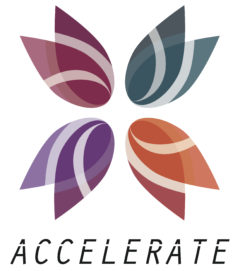
Research Infrastructures are considered one of the success stories of the European Research Area (ERA), and have transformed the way science is done as they facilitate access to large-scale facilities to perform excellent and ground-breaking research. Moreover, Research Infrastructures support in building bridges and linking communities across different regions, in Europe as well as globally, through scientific research and collaborations.
The continuum of the value of Research Infrastructures, as innovation hubs and pillars of the science system, is based on their long-term sustainability, which represents a crucial, important and challenging aspect, not only for the infrastructure but also for policy makers and funders.
To address the topic from different angles, the Horizon2020 projects ACCELERATE and the ERIC Forum Implementation Project organised the workshop ”Planning for Sustainability of Research Infrastructures”, which was held online on the 25thof May 2021.
The event brought together more than 155 participants from the Research Infrastructures/ERIC communities, policy makers, funding agencies, NGOs and industry. The event highlighted the policy views (from the European Commission, ESFRI, OECD and more), some potential directions to demonstrate the RIs socio-economic impact (OECD), and demonstrated the need to adapt existing business and sustainability planning instruments, to meet the varied expectations, requirements and approaches in planning for the medium to long-term sustainability of the specific environment of the European RIs.
The approach towards sustainability planning varies according to the objectives, domain and development stages of a Research Infrastructure. To have an overview with tangible examples, the 2ndsession of the event highlighted experiences of four ERICs (CERIC, CLARIN, EPOS and Instruct) from four different scientific domains on the development of their sustainability plans.
In general, Research Infrastructures are supported throughout their construction and set-up phase. However, the ability for a Research Infrastructure to remain operative and effective over its planned lifetime relies also on several other relevant external factors. Among others, these factors include the policy horizons, with the renewed European Research Area (ERA) under construction, the European Research Framework programme “Horizon Europe”, the new Cohesion policy, the ERIC instrument and the European Open Science Cloud (EOSC) initiative, among others. The concluding policy panel with high-level policy makers and shapers addressed the positions of the RIs in this wider European policy framework, largely under development, yet with strong relevance to sustainability planning of the RIs.
–
►The program is available here.
►The event recording is available here.
►The workshop’s presentations are available here below:
- Sustainability of Research Infrastructures:
> Jan Hrusak, Chair, ESFRI >>
> Dominik Sobczak, Deputy Head of Unit, European Commission (DG RTD) >>
> Giorgio Rossi, Chair of the EC’s High-Level Expert Group to Assess the Progress of ESFRI and Other World Class Research Infrastructures Towards Implementation and Long-Term Sustainability >>
> Frederic Sgard, Science and Technology Policy Division, OECD >>
Ilaria Nardello, Elements of RI sustainability planning, ERIC Forum Project >>
- Research Infrastructures’ Approaches to Sustainability Planning:
> Jana Kolar, CERIC-ERIC >>
> Susan Daenke, INSTRUCT-ERIC >>
> Franciska de Jong, CLARIN-ERIC >>
> Massimo Cocco, EPOS-ERIC >>
- Programme Committee:
Jana Kolar, CERIC-ERIC
Ornela De Giacomo, CERIC-ERIC
Ilaria Nardello, ERAMARIS
Salma Baghdadi, CERIC-ERIC
Ute Gunseheimer, European Spallation Source ERIC
Lenka Unge, European Spallation Source ERIC
- Organising Committee:
Jana Kolar, CERIC-ERIC
Ornela De Giacomo, CERIC-ERIC
Ilaria Nardello, ERAMARIS
Salma Baghdadi, CERIC-ERIC
